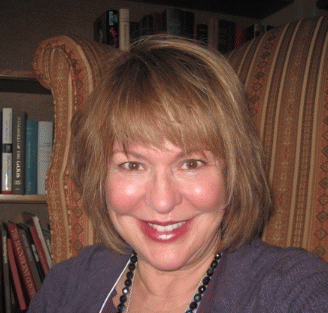Trial by Fire, The Backstory of Second Nature
My guest today is best-selling author, Jacquelyn Mitchard. Her first novel, The Deep End of the Ocean, written in 1999, was also the first selection of the Oprah Winfrey's Book Club, making for a stellar career kickstart. Welcome to OpEdNews, Jackie.
JB: I just finished reading Second Nature, a novel based on the 1958 fire that killed 92 children in their Chicago school. What made you choose this as the backdrop for your book?
JM: That happened when I was a baby, and I grew up with the story of Our Lady of Angels all around me. It was more than an event, it was a sunset on the bright stable way people saw their world. That had been a close-knit, West Side neighborhood, filled with brothers who married sisters and cousins and grew up down the block from each other, who played cards and had dinner together on Sunday nights.
That fire blew that neighborhood up. People didn't just move to the suburbs; they moved to Miami, to California, as far as they could from that school, because there was no one who didn't know someone who'd died in OLA. A friend's older brother died in that fire, and his presence in that house was as real as any of the living children, even those who never knew him. I was struck by how surviving an event could be just as paralyzing as dying in that event -- that the survivors were changed forever.
JB: I grew up in Chicago, too, and that fire has haunted us ever since. You chose Sicily Coyne as your central character. At the time of the fire, she's a 13-year old student. Why a girl and why that particular age, Jackie?
JM: Twelve or thirteen is the time in a girl's life when she's at the end of childhood and becoming aware of herself as a woman. It's when her awareness of her body image is at its most self-critical. She's not a little kid. Little kids adapt to injury; their awareness of themselves in a wheelchair or having lost hair to chemotherapy or sustaining a wound, those are real, but, if the kid has a reasonably supportive family, those things are tempered by the resilience of being accepted, at the deep heart's core, for who you are rather than how you look. Sicily had this sense of herself, too.
So in a very real way, she became trapped in a damaged face -- that was all anyone could see -- and she was screaming, "Hey, look! I'm still me!" The burn itself was a source of both bitterness and toughness, but her sarcasm and bitterness came from being seen, yet unseen. And I'm just very attracted to understanding the psychology of that age of person, which is why the imprint for which I'm the editor -in- chief is a Young Adult imprint. It's the age of being epic, living a week in an hour, a year in a month, a lifetime in a year.
JB: And, boy, has a lot gone on for Sicily. She's a woman/child who had to grow up fast because of that fire and losing both of her parents. Yet, she's also very unsophisticated and sheltered in many ways. It's an odd combination. Can you talk about this?
JM: Like many "sick kids," Sicily has been both coddled and deprived. Life itself has robbed her of so much; and yet she's given everything but what she can't have -- the chance to be normal. She has every material advantage and she's protected from the realities of paying bills and jockeying for social position.
People may whisper about her, but there's a kind of holy deference for a kid who's part of a local legend: her prerogatives are in line with her losses. And the aunt who adopted her, Marie, is torn between those two poles, as well -- deeply and nearly neurotically protective of Sicily, but also determined to push her into as normal a life as is possible, for Sicily to be "not as good as, but better than." The reason that some readers found Sicily annoying is that she really never grew up: she's stopped, an accomplished adolescent but in her reactions and her emotional landscape, still a middle-school kid.
JB: Interesting. I didn't find Sicily annoying. I found her situation incredibly and painfully poignant. I admit I'd never really thought about what surviving such an experience might be like before.
JM: Many people thought of her as "spoiled" and "shallow." Many other readers found her affecting and real. I think it often depends on what you've been through in life, and maybe what you've been through in books, what you tend to gravitate toward. Sometimes, people just really don't have a big tolerance for real life in fiction, even though they say they want characters who are "real." Like take Kinsey Mulhone, in Sue Grafton's wonderful mysteries. She's tough, thin, single, smart, and she never gets past the age of about 36. She goes down easy, like a cool drink on a hot day, so the story can gallop off everywhere.
JB: The Cappadora family was featured in your first book, The Deep End of the Ocean and you bring them back in Second Nature. In fact, we see that Beth Cappadora becomes surprisingly close to Sicily. Why does using utilizing the reappearance of characters from one book to another seem like a good idea?
(Note: You can view every article as one long page if you sign up as an Advocate Member, or higher).






